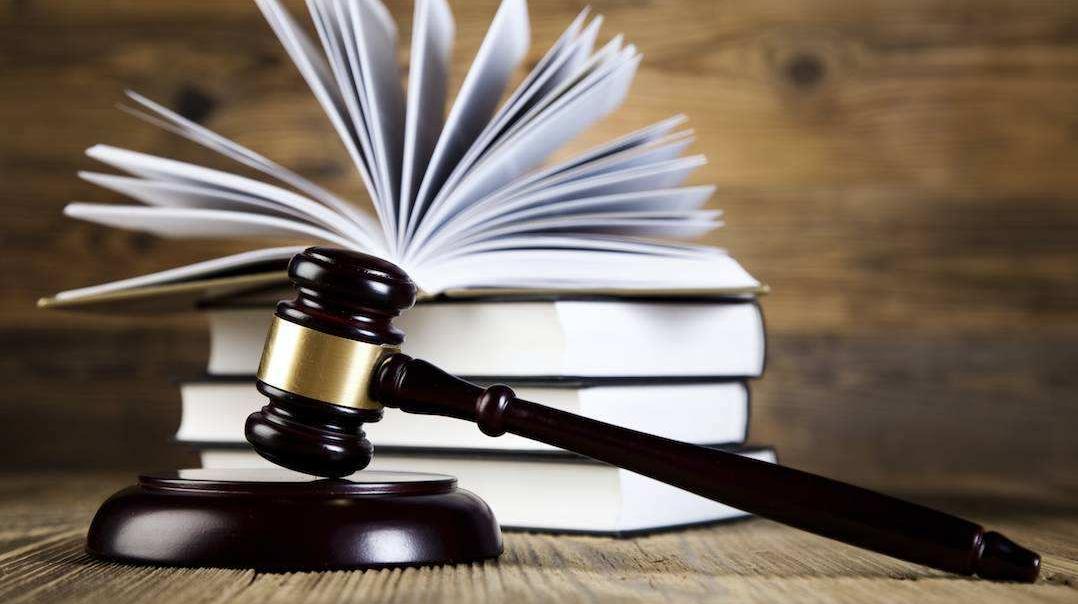第十三章 Armed Conflicts:Armed Conflicts13.1Armed Conflicts:If we look back to the history of international law, we can see there is a trend from the use of force to diplomacy, and then form diplomacy to law. How to distinguish legal wars form illegal wars? It is very hard to distinguish. Generally, the international community just recognizes the winner should judge the nature of the war.[单选题]甲国分立为“东甲”和“西甲”,甲国在联合国的席位由“东甲”继承,“西甲”决定加入联合国。“西甲”与乙国(联合国成员)交界处时有冲突发生。根据相关国际法规则,下列哪一选项是正确的?
13.2Lawful and unlawful wars:Lawful and unlawful wars
13.3The prohibition of the use of force in the United Nations Charter:What`s the consequence of war? As we have seen from history, war brings about casualties and wars are real catastrophe in human history. With the development of methods of war, unclear weapons are also used in modern war. This kind of method brings about not only casualties but also pollution of the environment.
13.4Exception:Self-determination is an exception to the principle of the prohibition of the use of force in U.N. Charter. Is preemptive self-defense legal or not? Is there any rule toward preemptive self-defense? What is collective self-defense?
13.5Self-determination and the use of force:Self-determination is explicitly mentioned in the U.N. Charter in aritle 1, and implicitly referred to in article 73 and 76. Whether the ethnic groups inside one state can be regarded as "people"? What`s the meaning of self-determination in different periods of time in the history?
13.6Lawful and unlawful means of waging war--nuclear weapons:With the development of modern technology, new weapons also developed a lot. Chemical weapons and nuclear weapons are used in wars. International law and domestic law are not changing so fast, while the international society and domestic society change very fast. Do we need to change the law to match the change of the society? Do we think we should have some principles which may be used to applied with the change of the international or domestic society? How can we protect civilians and also, civilian objects in modern wars?
13.7Rules governing the conduct of civil wars:Recently in international community, there are lots of civil wars. In the old days, humanitarian law could only be used in the armed conflicts of international character. But by and by, the international law develops, so today there are some rules related to non-international armed conflicts. As we know, the Geneva Conventions and two protocol to this convention is the general rules of armed conflict. And international society pays more and more attentions to domestic conflicts.
13.8War crimes trials:According to article 12 of the Rome Statute, International Criminal Court has the jurisdiction like the universal jurisdiction actually, states which are not the parties of this Statute may involved in ICC. While, the jurisdiction of universal character is the jurisdiction by a state. Whether the jurisdiction of ICC conflicts with the state sovereignty?
经安理会9个理事国同意后,“西甲”即可成为联合国的会员国
乙国在联大投赞成票支持“西甲”入联,一般构成对“西甲”的承认
“西甲”认为甲国与乙国的划界条约对其不产生效力
“西甲”入联后,其所签订的国际条约必须在秘书处登记方能生效
答案:乙国在联大投赞成票支持“西甲”入联,一般 构成对“西甲”的承认
[单选题]甲某为A国国家总统,乙某为B国国家副总统,丙某为C国政府总理,丁某为D国外交部长。根据条约法公约规定,上述四人在参加国际条约谈判时,哪一个需要出示其所代表国家颁发的全权证书?
甲某
乙某
丁某
丙某[单选题]根据《维也纳条约法公约》以及《联合国宪章》的有关规定,下列说法正确的是哪项?
联合国不把登记作为条约生效的要件
条约未经登记不得在世界贸易组织争端解决机制处理争议时引用
除条约另有规定外,保留须经接受保留的国家或国际组织的同意才可以撤回
谈判代表一般须持有被授权进行谈判的“全权证书”,但是国家元首、政府首脑或外交部正副部长等则无须出示“全权证书”[单选题]为了发展中哈两国在教育领域的双边合作,进一步提高合作科研的水平和效益,扩大两国在教育领域的交流,中华人民共和国教育部与哈萨克斯坦共和国教育科学部于2010年在阿斯塔纳谈判签署了《教育合作协定》,协定第8条明确该协定自签署之日起生效,协定一式两份。每份均用中文、哈萨克文和俄文写成,其中俄文文本为作准文本。关于该协定的谈判、签署,根据我国《缔约程序法》及《维也纳条约法公约》,下列哪项判断是正确的?
若中哈两国教育部对该协定中某一条款的理解发生分歧,中方只能以哈萨克文本解释,哈方只能以中方文本解释
若教育部派出本部门官员谈判签署该协定,该谈判代表的全权证书应由外交部长签署
若教育部长亲自谈判签署该协定,其全权证书可由外交部长签署
该协定不能自签署之日起生效,我国对外签订的条约或协定都必须经全国人大常委会批准才能生效[单选题]关于条约的缔结程序,下列说法不正确的是哪项?
条约的缔结通常包括谈判和议定约文、约文的认证、签署、批准和批准书的交换、核准、加入等程序环节
根据国家主权和自由同意原则,签署国没有必须批准条约的义务
双边条约可以由一方起草条约草案,也可以双方各自起草条约草案
条约缔结程序的环节,有些是双边条约和多边条约共有的,有些则是双边条约独有的[单选题]根据国际法关于国际争端解决的相关规则和实践,下列关于争端解决方式的表述中,正确的是哪一项?( )
乙丙两国之间就边界问题发生争端,联合国秘书长出面说服甲乙两国以协商方式解决争端,联合国秘书长的行为超越了其职权范围
2010年,甲国爆发大规模传染病,乙国为避免传染病蔓延至本国,宣布禁止甲国人入境,一周后甲国也宣布禁止乙国人入境。本案中甲国采用的争端解决方式称为报复
甲乙两国之间就移民问题发生纠纷,丙国为支持甲国出面进行干涉,这是符合国际法的
丙丁两国隔海相望,两国之间经常就专属经济区和大陆架划界的问题发生争端,后双方达成书面协议同意将此争端提交联合国国际法院,国际法院对此争端有管辖权 [单选题]甲、乙两国因历史遗留的宗教和民族问题,积怨甚深。2004年甲国新任领导人试图缓和两国关系,请求两国予以调停。甲乙丙三国之间没有任何关于解决争端方法方面的专门条约。根据国际法的有关规则和实践,下列哪一项判断是正确的?
如果丙国进行调停,则甲国必须接受调停结果
如果丙国进行调停,则乙国有义务参与调停活动
如果丙国进行调停,对于调停的结果,一般不负有监督和担保的义务
丙国在这种情况下,有义务充当调停者[单选题]关于联合国国际法院的表述,下列哪一选项是正确的?
国际法院法官对涉及其国籍国的案件,不适用回避制度,即使其就任法官前曾参与该案件
国际法院判决对案件当事国具有法律拘束力,构成国际法的渊源
联合国常任理事国对国际法院法官的选举不具有否决权
国际法院作出的咨询意见具有法律拘束力[单选题]甲乙两国由于边界纠纷引发武装冲突,进而彼此宣布对方为敌国。目前乙国军队已突入甲国境内,占领了甲国边境的桑诺地区。根据与武装冲突相关的国际法规则,下列哪些选项符合国际法?()
甲国对位于其境内的乙国国家财产,包括属于乙国驻甲国使馆的财产,不可予以没收
乙国对桑诺地区的甲国公民的私有财产,予以没收
乙国强令位于其境内的家国公民在规定时间内进行敌侨登记
甲国对位于其境内的乙国国民的私有财产,予以没收[单选题]甲、乙两国发生战争,丙国发表声明表示恪守战时中立义务。对此,下列哪一做法不符合战争法?
甲、乙交战期间,丙同意甲通过自己的领土过境运输军用装备
甲、乙战争开始后,除条约另有规定外,二国间商务条约停止效力
甲、乙不得对其境内敌国人民的私产予以没收
甲、乙交战期间,丙可与其任一方保持正常外交和商务关系
温馨提示支付 ¥1.00 元后可查看付费内容,请先翻页预览!

